FurBeGone Pest Control offer Wasp Pest Control Treatment and Wasp Nest removal. We offer 24 hour pest control covering Stevenage, Hitchin, Letchworth and surrounding villages. We will assess your wasp infestation and recommend the best treatment to ensure the wasps and their nest are removed safely.
Wasps are persistent pest and removing them isn’t always simple. Their nests are often hidden, and wasps can enter your home through small holes in brickwork or tiny gaps or cracks around window frames to find somewhere to safely build their nests.
Wasps usually begin building their nests in springtime when the weather starts to get warmer. During summer, the nest will grow usually starting around the size of a golf ball and often increasing to the size of a football. As the temperature cools and autumn begins the worker wasps will begin to die off and the queen will hibernate for winter.
In the spring the Queen will immerge and start to build a new nest where she will lay her eggs in preparation for new workers and queens to take over.
Wasps obviously sting and if they nest in your house, there is potential for them to access your living areas and sting you.
Damage can occur to your property if the nest becomes damp, this will spread moisture and possibly cause damp problems or rot parts of your house.
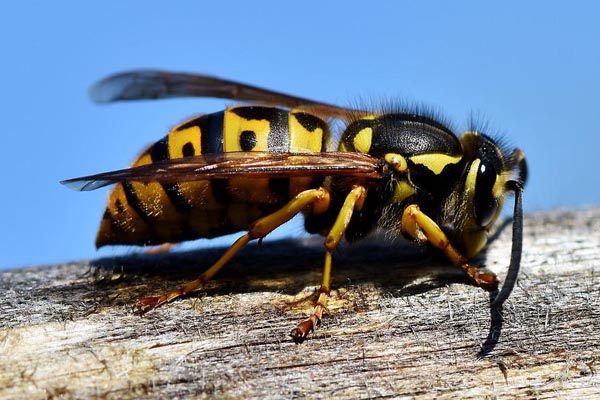
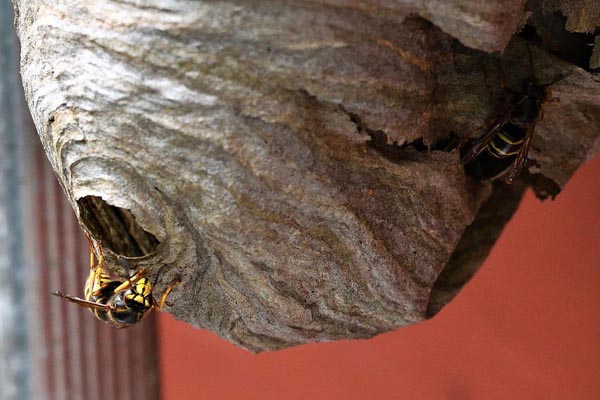
If you find a wasp nest, do not touch it as wasps can sting multiple times in a single attack and some people can experience allergic reactions to wasp stings causing redness and swelling for days or even more severe reactions.
It is not advisable to try to treat a wasps nest yourself, the best thing to do would be to contact us for advice before taking any action.
We will usually apply insecticide near the nest entrance, then the wasps bring the chemical into the nest, spreading it to the colony and after a few days the wasps will die.
After this, the nest will need removing and we can arrange to return to do this for you.
For further information on wasp removal, please read our blog post here.
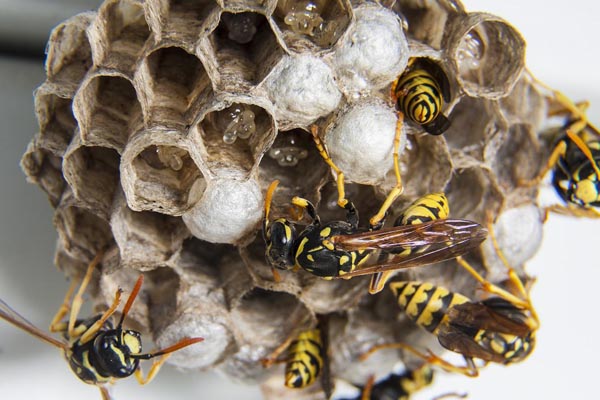
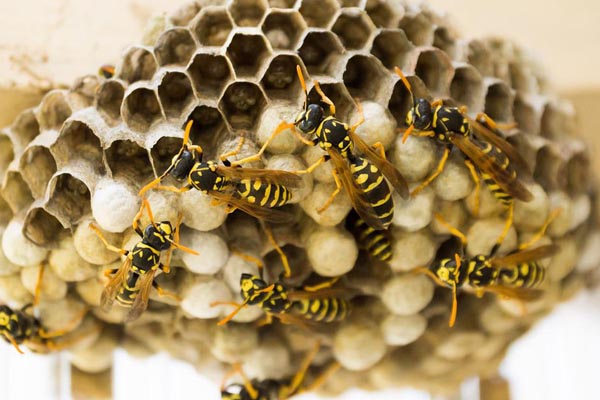
It is not advisable to try to treat a wasp nest yourself. Although you can buy insect sprays at DIY shops, they do not work well on nests as the spray will not reach those inside the nest. The result will most likely be antagonising the wasps to attack.
Wasps start to build their nests in the spring. Once summer begins, the nest size will increase, starting around the size of a golf ball and increasing as large as a football but sometimes even bigger.
It is not advisable to approach a wasps nest as wasps can sting multiple times in an attack. If you have a wasp nest in your property it is advisable to consult a pest control professional for advice.
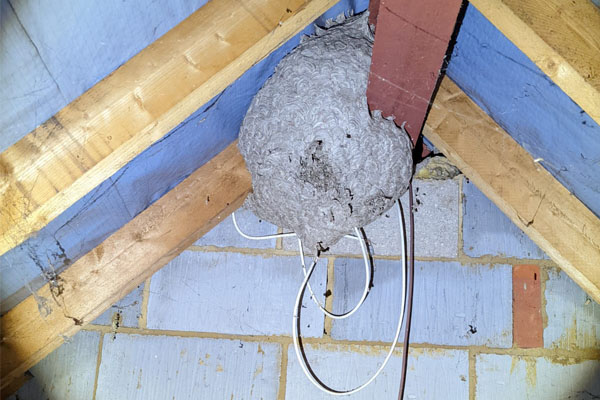
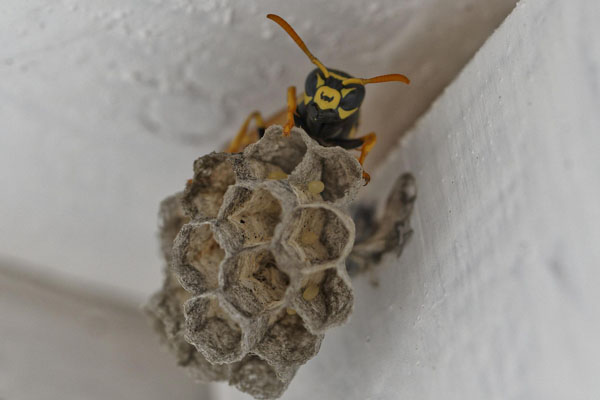
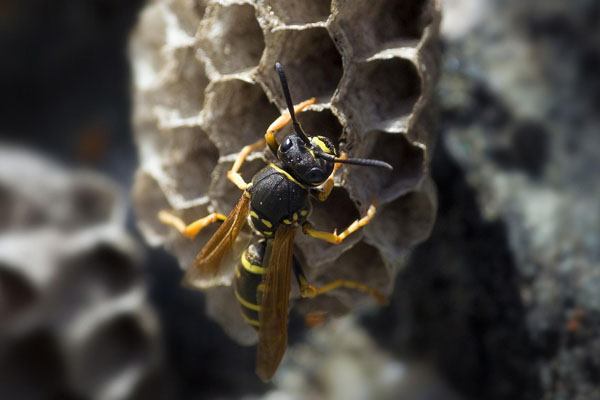
Pest control will usually apply insecticide at the entrance of the nest. Wasps entering will take the chemical into the nest, spreading it to the colony and after a few days the wasps will all die. A few days later the nest will need to be removed.
Yes, wasp stings can be very painful. Not only that, but wasps can also sting more than once and receiving multiple stings can cause anaphylaxis. Some people are allergic to wasp stings and don’t know it until they are stung!
If left alone a wasp nest will not completely die off therefore treatment and removal is required. The queen will often hibernate in the nest.
We are 5 star rated on Google for Pest Control in Stevenage
Letchworth: Broadway Gardens, Cromwell Green, Howard Park, Icknield Way, Jackmans Estate, Letchmore, Lordship Estate, Norton, Norton Common, Wilbury, Willian
Hitchin: Bancroft, Poets Estate, Purwell, Ransoms, Sunnyside, Walsworth, Westmill, Wilbury Way, Woodside
Surrounding Villages: Ardeley, Arlesey, Aston, Aston End, Astwick, Baldock, Benington, Burns Green, Charlton, Clothall, Cromer, Datchworth, Graveley, Great Offley, Great Wymondley, Hebbing End, Holwell, Ickleford, Knebworth, Little Wymondley, Offley, Old Knebworth, Pirton, Radwell, St Ippolyts, Stotfold, Walkern, Watton at Stone, Weston, Whempstead
Website by Tyger Media